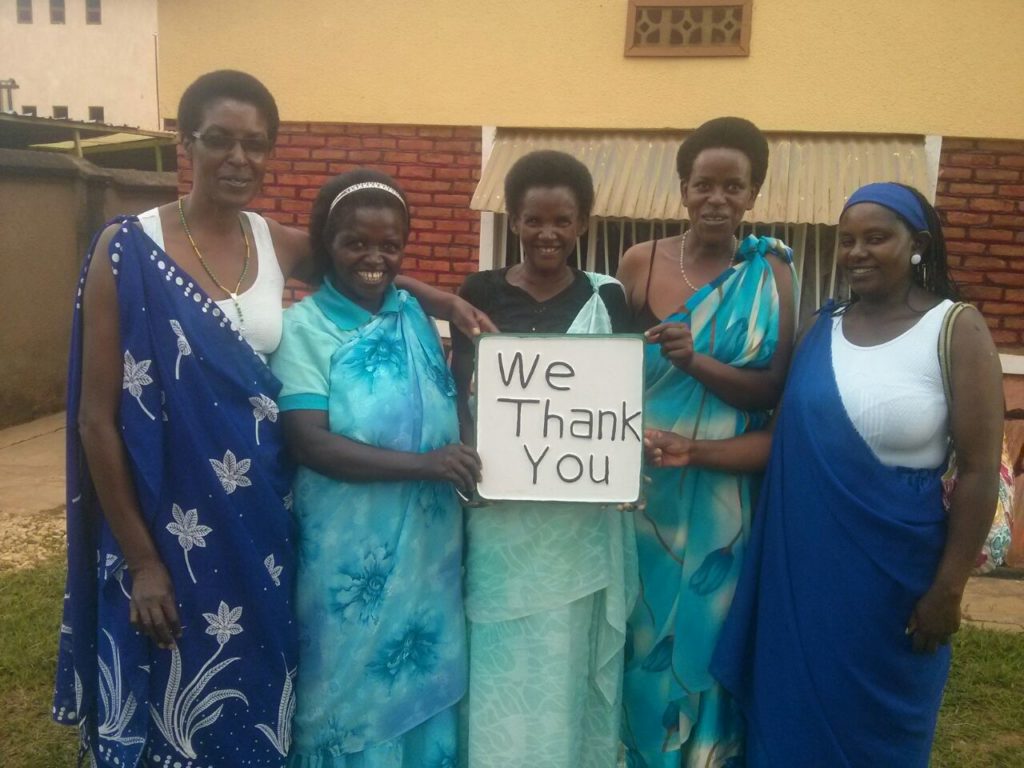
Continuing our series of articles from our Annual Report 2023/24, we outline here our work on our Foundation Rwanda programme.
Through funding from Foundation Rwanda, Survivors Fund (SURF) is currently addressing the education and counselling needs of young people conceived through rape during and under circumstances directly related to the 1994 genocide committed against Tutsi in Rwanda. The challenge for the affected mothers and children is that FARG, the government body that assists vulnerable survivors of the genocide, does not consider these young people eligible for support because they were born after genocide and thus are not by definition survivors. However, they are recognised to be a particularly vulnerable and marginalised population.
Since Foundation Rwanda’s inception in 2007, Survivors Fund (SURF) has been the key partner in providing life-changing services to the Foundation Rwanda families, which has helped more than 1,700 women and their offspring.
Unemployment is at a high rate in Rwanda, especially among young people. Technical and Vocational Education and Training (TVET) has been a principal solution to address youth unemployment because graduates with a trade are more easily able to start their own businesses, create job opportunities and sustain themselves and their families financially. In 2022, 80 new youth were supported to access TVET through funding for relevant courses and programmes.
Even though Foundation Rwanda have supported many young people to attend TVET courses and over 400 of them have graduated with adequate knowledge and skills, many of those graduate’s face unemployment challenge and do not have the capital to start their own businesses.
To address this challenge, Foundation Rwanda has set up a Small Business Innovation Fund programme to provide capital to youth who want to start small businesses. In 2023, 17 youth have been sponsored to start their own businesses and there is a plan to support more youth in the near future.
The students who have grown into inspiring, hopeful young adults now face the challenge of securing jobs or attending university while grappling with the circumstances of their birth and the legacy of trauma. SURF remains committed to continue implementing Foundation Rwanda’s programs with our local partner organizations, Solace Ministries, Kanyarwanda, and AVEGA Agahozo.
U.C *
“I grew up living with my mother, who was often sick without knowing the reasons for her chronic disease. When I tried to ask her about my father, her health status worsened significantly. Sometimes she would cry, become verbally aggressive, or even beat me, which hurt me deeply.
“I was fortunate to receive support from Foundation Rwanda when I was in Grade 5 of primary school. I am grateful that, as a child born out of rape without a father to pay my school fees, Foundation Rwanda covered my primary and secondary education. During this time, I studied Literature, Swahili, and English.
“During my secondary school studies, my mother joined a counselling group and began addressing me in a non-violent way. As a result, conflicts between us started to reduce. It was during this time that she sat down with me and told me about the circumstances of my birth; I was born from rape during the 1994 Genocide against the Tutsi. After I found out, it was hard to accept and live with. Subsequently, I started isolating myself, feeling hopeless, having difficulty sleeping, easily becoming angry, and feeling ashamed of being born from an unknown criminal, a perpetrator of genocide. He remains unknown because my mother told me that she had been raped by many perpetrators and was unable to identify the one responsible. I reached a point of hating myself, losing the sense of life.
“All of this came to an end, and I accepted whatever happened when I went to a youth camp and met with other youths with whom I shared a common life story. Then, I realised I was not alone. After graduating from secondary school, I found myself in the devastating situation of being raped and becoming pregnant. Cohabiting with the man became necessary so that, at the very least, my child would know his father and not be like me.
“I lived with my husband in a state of conflict and emotional abuse, feeling because I was born from a killer or perpetrator. This situation worsened when I received a university scholarship because he had not graduated from school; he wanted to prevent me from pursuing my studies. However, I refused to give up on my education, and as a result, we separated. I attended university and pursued a degree in hospitality under a scholarship from CNLG (the Ministry of National Unity and Civics Engagement), leaving my child with my mother. I successfully graduated and obtained an Advanced Diploma.
“After completing my university studies, I struggled to find a job. However, due to my responsibilities of caring for my child and my mother, I decided to work as a housemaid for a Kenyan employer. Simultaneously, I undertook a one-year short course in driving and mechanics with the support of Foundation Rwanda, which I consider to be like a father figure to me. Now, I hold a Category B driving license, I am a mother to a 5-year-old boy, and I am employed at a 3-star hotel. My role involves working as a waitress during the day, and because I also have a driving license, I am able to work as a driver at night, transporting customers who are unable to drive themselves due to alcohol consumption.
“All of this is possible due to the support of Foundation Rwanda. I live independently, paying rent and school fees for my child. From the depths of my heart, I want to express my sincere gratitude to Foundation Rwanda for helping us build our resilience through education, paving the way for a brighter future. Thank you so much.”
